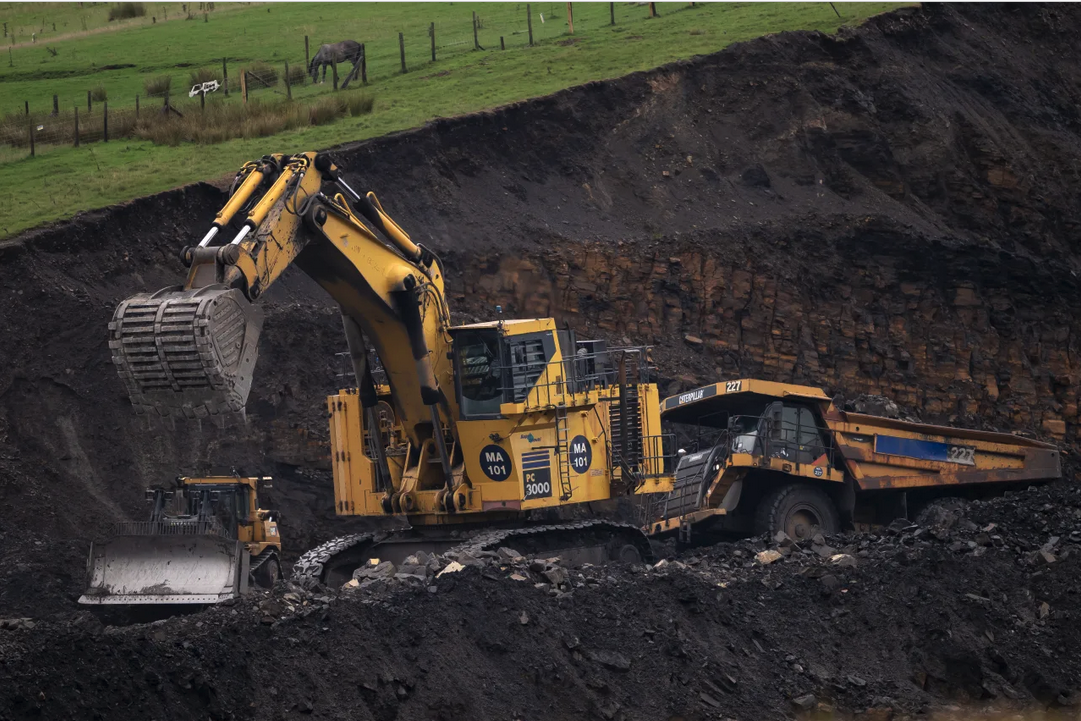African countries now have to pay a CO2 border tax when exporting to Europe and are burdened with a huge amount of paperwork before they’re even allowed to export to the EU. There is a risk that this leads to increased exports of raw materials, as opposed to value-added products.
he European Union’s climate policy is primarily characterised by one-way traffic. This is particularly true for African economies. These African players are now confronted with new measures to green and protect the European economy, without adequate preparation or engagement.
A patent example of this is the carbon border adjustment mechanism (Cbam) introduced in 2023. There has not been extensive consultation regarding the necessity or utility of the climate policy before it was implemented, nor is there guidance in implementation after the unilateral enactment of the policy.
Cbam aims to ensure a level playing field by preventing European companies from relocating to countries with less stringent local environmental regulations. This phenomenon, known as carbon leakage, is addressed by requiring that if companies want to sell in Europe, they pay for the emissions generated during production, regardless of where the production takes place.
With this CO2 border tax, Europe creates a safeguard for its own economic position and aims to make the departure of European companies de facto impossible.
Developing economies, particularly in Africa, bear the brunt of this. Cbam makes it impossible for African companies to leverage their old competitive advantage — a less restrictive and regulated industrial policy. They now have to pay a CO2 border tax when exporting to Europe and, adding insult to injury, see themselves burdened with a huge amount of paperwork before they’re even allowed to export to the EU. There is a risk that this leads to increased exports of raw materials, as opposed to value-added products.
Skewed playing field
The major downside of policies like Cbam are the lack of stability and openness in application of regulations. Increasingly there is a narrative pitting the “West” against African economies, where Western actors are seemingly inconsistent and unfair in the application of expectations around the renewable energy transition.
As a cautionary tale, we can turn to the lack of consultation and careful engagement between governments and affected stakeholder groups at the intersection of climate and farming in the EU. In the Netherlands, Belgium, Germany and France, among others, global headlines have highlighted the large-scale farmer protests to environmental regulations – which specifically impact farmers.
The result is the rolling back of climate-focused legislation. From a political perspective, this is a rational stance to adopt – governments don’t want disaffected and highly effective protests to continue (in the Netherlands, farmers have been blocking highways with their tractors, on and off, since 2019). But the optics aren’t good.
Belgium’s Prime Minister Alexander De Croo has said “We’ve been very clear that we want to work with the agricultural world and not talk about the agricultural world.” The same mentality should apply to interacting with African companies on CBAM.
Similarly African countries and companies should not wait to be invited to the table, but proactively set up engagement and discussion with their EU counterparts. This is not to say African companies should protest, but a mature approach to dialogue should be adopted. And further engagement with the World Trade Organisation is encouraged, as we’ve seen with South Africa and India.
Research on the impact of Cbam on African economies reveals that many African companies express support for the idea behind the border tax mechanism. They recognise the importance of climate legislation and are not afraid of the potential consequences for their operations.
What African companies find harder to accept is that CBAM creates a level playing field. For them, a level playing field means simplifying access to the market, not adding more European hurdles. More trade, not less. They blame Europe for imposing this hurdle without consulting them.
One possible gesture, considered fair and efficient by many African companies, is to invest African Cbam revenues back into African economies to boost the Just Economic Transition. This way, the money flows back to where it is most effective according to Cbam principles. Better still, is local carbon tax measures that prevent the flow of money out of the continent, and forego the need to adhere to external policies.
However, Europe needs to actively support such moves, for instance through institutions like the African Development Bank which can facilitate discussions across industries. There is still time to initiate this dialogue, but urgency is required.
What Europe fails to realise is that a dialogue between continents is not only possible, but is in itself an instrument of great value for the legitimacy of a border tax mechanism. It is only through dialogue that African companies can express their concerns, and Europe can address them.
To end on a high note, the one upside of Cbam is that it has us talking and thinking about carbon taxation and more sustainable practices across the board, with a much greater intensity and focus.
Stay informed with The Namibian – your source for credible journalism. Get in-depth reporting and opinions for
only N$85 a month. Invest in journalism, invest in democracy –
Subscribe Now!






